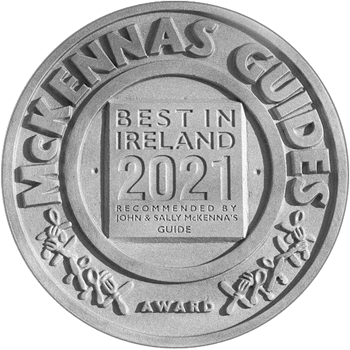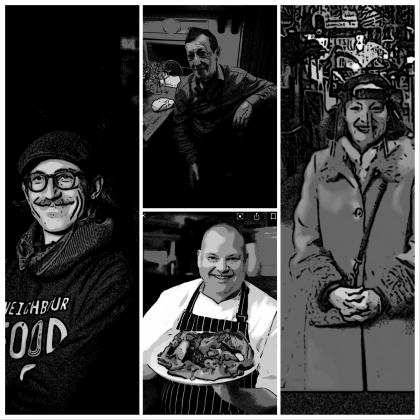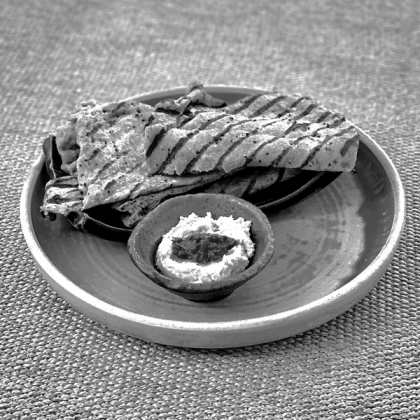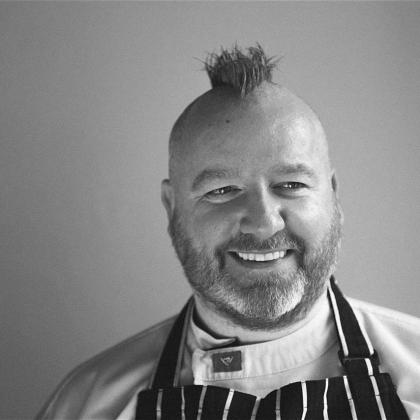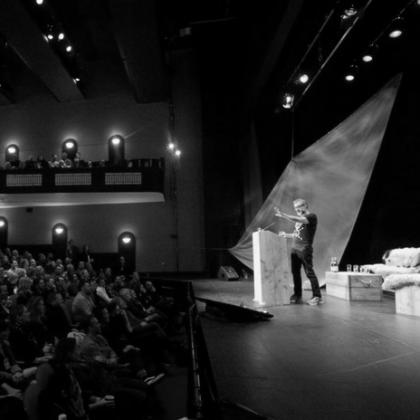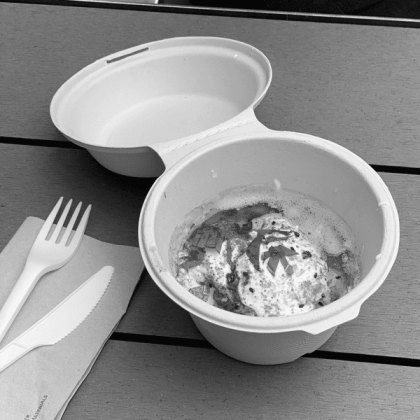The Law of Diversity
From the moment we switch on the radio first thing in the morning, we are enduring a diet of non-stop economics. More accurately, and more importantly for our mental health, we are enduring a diet of non-stop economic woe, which has been building up steam not just for the last twelve months when Northern Rock put the fear of God into Irish savers, but for the last three years, ever since the first fissure lines began to appear in the US sub-prime debacle.
Generally speaking, economics in the media is the business of economics correspondents, who are in turn briefed and influenced by economists, who like to talk in terms of Laws. But, inasmuch as an old Clause-4 socialist like myself can understand the dismal science, I want to propose that everyone have the democratic right to invent their own Law of Economics.
Here is mine: it is the Law of Diversity.
The Law of Diversity proposes that the way to human mental and physical healthfulness and successful economies – and the latter is designed to create the former, not the other way ’round – is to have societies, agricultures and economic structures that are as diverse as is humanly possible. Difference is good, diversity is culture, balance is Zen.
So, applying my Law – it’s always a good idea to give your Law a capital “L”, otherwise you won’t get a Nobel prize for it – how has the Irish government done over the last decade?
Badly.Very badly indeed.
Because it was a cash cow, the Government allowed the building sector to grow to 25% of the economy, when it should never have been a whole lot more than 10%. No balance, no Zen, no sustainability.
At the same time, the Government created a bureaucratised, Soviet-style monster it called the HSE in order to oversee our health and our health services. No diversity there, I’m afraid, so they have broken my Law once again.
In the agricultural sector, where a surplus of Exchequer funds could and should have fostered the management of a diverse and cultured agriculture, the Government has just kept on taking EU subsidies which have made our agriculture intellectually bankrupt over the last 30 years. No new diversity there, then.
The consequences of breaking Laws is all around us. A banking and financial sector lurching from crisis to crisis. A health sector lurching from crisis to crisis. An agricultural sector that runs around the place like a headless chicken.
Ireland Inc., in short, is a bit of a mess. And that is before the HSE tries to cope with the rash of referrals for patients with depression caused by the recession.
How has this happened? Well, to find a solution, we have to dream up another Law, which is the Law of Silver Bullet Thinking.
This Law says that there is one solution to any challenge. The Exchequer needs money? Haul in the Stamp Duty! The nation’s healthfulness is in decline? Create the HSE! Farming is a mess? Ride the Brussels Gravy Train!
Silver Bullet Thinking is endemic amongst politicos, bureaucrats, economists and farmers of a certain age. Recently, for example, the journalist Tyler Brulée wrote of quizzing former Mayor of London Ken Livingstone about London’s over-dependence on the financial sector:
“When I asked him whether the city should be doing more to encourage a more rounded creative community (for example, not just having design studios and headquarters for advertising agencies but also ateliers and light industry to support this sector), I was informed that those days were gone and that he didn’t really see those types of businesses having a place in London”.
Silver Bullet Thinking, par excellence. One solution, which brings in the money, so to hell with the rest. Brulée was proposing the City of Diversity. Livingstone was content with the City of Capital.
And look what has happened to Capital.
It looks grim, doesn’t it? But, despite ourselves and our lemming-like behaviour in this country over the last decade, we are actually a diverse bunch. Humans instinctively cling to the Law of Diversity, so there is always hope. And the monoliths built by Silver Bullet Thinking – EU-subsidised agriculture, the HSE, free market capitalism – are in no way sustainable, so they will eventually crumble and die.
Meantime, our task is to follow the Law of Diversity. I had a particularly lovely example of it just last weekend at the second Savour Kilkenny Festival. In one beautiful room in Castlcomer, you could taste the superlative Cramers Grove ice cream – made by local farmers Nigel and Carol. You could enjoy apple juice made from the prized karmine apple, from Dunedin orchards at Bennettsbridge. Olivia Goodwillie was grilling her unique Lavistown sausages, and Helen Finnegan had her own gold-medal winning farmhouse cheeses from Knockdrinna. Margaret Kirwan had superlative Irish trout from her farm at Goatsbridge, and Thomas Lyng’s Angus beef was chocolate-dark and utterly delicious. The brown soda bread from the Moore family’s Oldtown Bakery was as fine a soda as I have eaten in years.
Diverse foods, from diverse individuals who are united by a natural creativity, and who offer a microcosm of what a diverse culture really means, and what it can achieve for our health, and our society.
From the moment we switch on the radio first thing in the morning, we are enduring a diet of non-stop economics. More accurately, and more importantly for our mental health, we are enduring a diet of non-stop economic woe, which has been building up steam not just for the last twelve months when Northern Rock put the fear of God into Irish savers, but for the last three years, ever since the first fissure lines began to appear in the US sub-prime debacle.
Generally speaking, economics in the media is the business of economics correspondents, who are in turn briefed and influenced by economists, who like to talk in terms of Laws. But, inasmuch as an old Clause-4 socialist like myself can understand the dismal science, I want to propose that everyone have the democratic right to invent their own Law of Economics.
Here is mine: it is the Law of Diversity.
The Law of Diversity proposes that the way to human mental and physical healthfulness and successful economies – and the latter is designed to create the former, not the other way ’round – is to have societies, agricultures and economic structures that are as diverse as is humanly possible. Difference is good, diversity is culture, balance is Zen.
So, applying my Law – it’s always a good idea to give your Law a capital “L”, otherwise you won’t get a Nobel prize for it – how has the Irish government done over the last decade?
Badly.Very badly indeed.
Because it was a cash cow, the Government allowed the building sector to grow to 25% of the economy, when it should never have been a whole lot more than 10%. No balance, no Zen, no sustainability.
At the same time, the Government created a bureaucratised, Soviet-style monster it called the HSE in order to oversee our health and our health services. No diversity there, I’m afraid, so they have broken my Law once again.
In the agricultural sector, where a surplus of Exchequer funds could and should have fostered the management of a diverse and cultured agriculture, the Government has just kept on taking EU subsidies which have made our agriculture intellectually bankrupt over the last 30 years. No new diversity there, then.
The consequences of breaking Laws is all around us. A banking and financial sector lurching from crisis to crisis. A health sector lurching from crisis to crisis. An agricultural sector that runs around the place like a headless chicken.
Ireland Inc., in short, is a bit of a mess. And that is before the HSE tries to cope with the rash of referrals for patients with depression caused by the recession.
How has this happened? Well, to find a solution, we have to dream up another Law, which is the Law of Silver Bullet Thinking.
This Law says that there is one solution to any challenge. The Exchequer needs money? Haul in the Stamp Duty! The nation’s healthfulness is in decline? Create the HSE! Farming is a mess? Ride the Brussels Gravy Train!
Silver Bullet Thinking is endemic amongst politicos, bureaucrats, economists and farmers of a certain age. Recently, for example, the journalist Tyler Brulée wrote of quizzing former Mayor of London Ken Livingstone about London’s over-dependence on the financial sector:
“When I asked him whether the city should be doing more to encourage a more rounded creative community (for example, not just having design studios and headquarters for advertising agencies but also ateliers and light industry to support this sector), I was informed that those days were gone and that he didn’t really see those types of businesses having a place in London”.
Silver Bullet Thinking, par excellence. One solution, which brings in the money, so to hell with the rest. Brulée was proposing the City of Diversity. Livingstone was content with the City of Capital.
And look what has happened to Capital.
It looks grim, doesn’t it? But, despite ourselves and our lemming-like behaviour in this country over the last decade, we are actually a diverse bunch. Humans instinctively cling to the Law of Diversity, so there is always hope. And the monoliths built by Silver Bullet Thinking – EU-subsidised agriculture, the HSE, free market capitalism – are in no way sustainable, so they will eventually crumble and die.
Meantime, our task is to follow the Law of Diversity. I had a particularly lovely example of it just last weekend at the second Savour Kilkenny Festival. In one beautiful room in Castlcomer, you could taste the superlative Cramers Grove ice cream – made by local farmers Nigel and Carol. You could enjoy apple juice made from the prized karmine apple, from Dunedin orchards at Bennettsbridge. Olivia Goodwillie was grilling her unique Lavistown sausages, and Helen Finnegan had her own gold-medal winning farmhouse cheeses from Knockdrinna. Margaret Kirwan had superlative Irish trout from her farm at Goatsbridge, and Thomas Lyng’s Angus beef was chocolate-dark and utterly delicious. The brown soda bread from the Moore family’s Oldtown Bakery was as fine a soda as I have eaten in years.
Diverse foods, from diverse individuals who are united by a natural creativity, and who offer a microcosm of what a diverse culture really means, and what it can achieve for our health, and our society.
